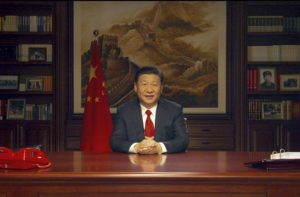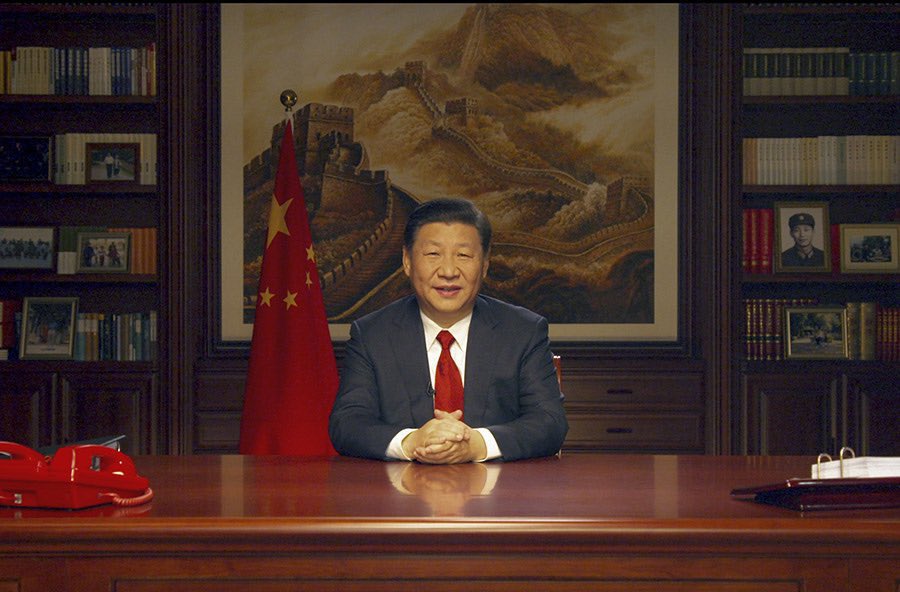
By Adeyemi Adekunle
China has publicly declared that Gaza belongs to the Palestinians and should not be treated as a political bargaining chip. This statement comes as the international community grapples with the recent U.S. proposal to restructure the Middle East and alter the territorial status of Gaza. The timing of China’s comments, following escalating tensions and the announcement of the U.S. plan, highlights the shifting dynamics of global support for Palestinian sovereignty.
China’s Foreign Ministry, in an official statement, firmly stated that “Gaza is Palestinian land,” underlining its unwavering position on Palestinian self-determination. The Chinese government emphasized that any attempts to trade or alter Gaza’s status as part of political deals would be unacceptable. This declaration follows a highly controversial plan put forward by U.S. President Donald Trump, which aims to transform Gaza into an international zone governed by U.S. interests while proposing the relocation of Palestinians to other countries in the region.
The U.S. proposal, unveiled during a joint press conference with Israeli Prime Minister Benjamin Netanyahu, has sparked international outrage. President Trump described the plan as a “peace initiative” that would guarantee security for Israel and revitalize the Gaza region. The plan envisions Gaza as a “Riviera of the Middle East,” a thriving economic zone under American administration. While Trump insists that the relocation would be voluntary, critics, including key international players, have labeled the plan as nothing more than an attempt to erase Palestinian identity in the region.
The global response to the U.S. initiative has been largely negative. In Europe, Germany has called the plan “unacceptable,” with Chancellor Angela Merkel condemning any effort to forcibly remove Palestinians from Gaza. Germany’s Foreign Minister similarly warned that the proposal could lead to “ethnic cleansing,” a term widely seen as a violation of international law. The United Nations has also voiced strong disapproval, warning that such actions could escalate tensions and lead to further destabilization in the Middle East.
Within the Arab world, countries like Jordan, Egypt, and Lebanon have also voiced their concern, stressing the need for a political solution that respects the rights of Palestinians and upholds international law. These governments argue that the U.S. proposal undermines the long-standing international consensus on a two-state solution and ignores the aspirations of the Palestinian people for self-determination.
China’s comments are significant not only because of the country’s rising influence in Middle Eastern affairs but also because they reflect a broader shift in global geopolitics. Beijing has long been a vocal advocate for Palestinian sovereignty, consistently calling for a fair and just solution to the Israeli-Palestinian conflict. This position is rooted in China’s broader foreign policy, which emphasizes non-interference in the internal affairs of sovereign nations and the need for political solutions based on mutual respect and dialogue.
In fact, China’s diplomatic outreach to the Palestinian cause has been evident for several years. In 2024, China hosted the “Beijing Declaration,” a historic agreement between Palestinian factions Hamas and Fatah. The declaration was seen as a step toward unification of Palestinian political forces, with China offering its support to ensure that Gaza remains under Palestinian control. Beijing’s role in facilitating this agreement highlights its increasing diplomatic engagement in the region and its commitment to Palestinian rights.
Moreover, China’s firm stance comes at a time when the broader Middle East is facing heightened tensions. The region continues to be shaped by complex alliances and rivalries, particularly as Iran and Saudi Arabia navigate their own interests. In this context, China’s alignment with the Palestinian cause places it at odds with Western powers, particularly the United States, whose policies toward the Middle East have shifted dramatically under the Trump administration.
The implications of China’s statements are significant for both regional and global geopolitics. By rejecting the U.S. proposal and reaffirming its support for Palestinian sovereignty, China is positioning itself as a key player in the Middle East, one that is willing to challenge Western-led initiatives if they do not align with international law and the principles of self-determination. Beijing’s influence in the region has been growing, particularly with its Belt and Road Initiative, which seeks to strengthen economic ties between China and Middle Eastern nations.
As the world watches these developments, the fate of Gaza and the broader Israeli-Palestinian conflict remains uncertain. The U.S. proposal has raised the stakes, but China’s response signals that the issue of Palestinian sovereignty is far from being resolved through unilateral actions. The international community will now have to contend with not only the complex political realities of the Middle East but also the rising influence of China as a diplomatic force advocating for the rights of Palestinians.
The outcome of this geopolitical standoff will likely shape the future of the region, as countries like China continue to assert their role in advocating for a just and lasting peace. What remains clear is that Gaza’s future, and the future of the Palestinian people, will be determined by more than just political deals—it will be shaped by the collective will of the international community and the voices of those who call Gaza home.




